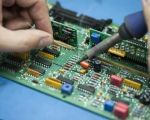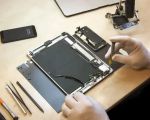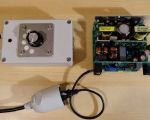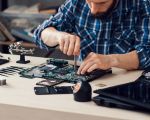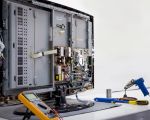Understanding Boot Media and Its Importance in Data Management
- 1. What is Boot Media?
- 2. Types of Boot Media
- 3. How Boot Media Works
- 4. Use Cases for Boot Media
- 5. Choosing the Right Boot Media for Your Needs
- 6. Where to Buy Boot Media Products
1. What is Boot Media?
Boot media is an essential tool in data management and computer systems, allowing users to load an operating system or other software onto a computer. It is typically a removable storage device, such as a USB drive, CD/DVD, or external hard drive, that contains the necessary files to boot a system and initiate a software environment. Without boot media, a computer cannot load its operating system, which makes it critical for system repairs, installations, and data recovery.
In both personal computing and enterprise settings, boot media plays a crucial role in system setup, troubleshooting, and recovery processes. Whether you're looking to install a new OS or recover data from a damaged system, understanding boot media and its functions is vital for efficient data management.
2. Types of Boot Media
There are various types of boot media, each serving different purposes depending on the system and user needs. Below are some of the most commonly used boot media types:
- USB Flash Drives: One of the most popular choices for boot media, USB drives are portable, fast, and easy to use. They are commonly used to install operating systems or run diagnostic tools directly from the boot environment.
- DVDs and CDs: Although less common today, CDs and DVDs were historically used as boot media, especially for system installations and recovery. They remain useful for older systems or where USB booting is not supported.
- External Hard Drives: For more complex boot scenarios, an external hard drive can serve as boot media. It is often used in enterprise environments or for users who require larger storage capacities for backups or operating system images.
- Network Boot (PXE): In some advanced IT environments, network booting, or PXE (Preboot Execution Environment), allows systems to boot over a network connection, making it suitable for managing large-scale deployments of operating systems.
Each of these boot media options has unique features, and the best choice depends on factors like system compatibility, performance needs, and storage requirements.
3. How Boot Media Works
Boot media works by providing the necessary files and instructions that the computer needs to start up. The process begins when the system's BIOS (Basic Input/Output System) or UEFI (Unified Extensible Firmware Interface) recognizes the bootable device and loads the bootloader from it. Once the bootloader is executed, it starts the operating system or recovery tools.
The boot process typically follows these steps:
- System Power On: When the computer is powered on, the BIOS or UEFI firmware checks the available boot devices.
- Device Recognition: The BIOS or UEFI identifies the boot media and loads the bootloader from the device.
- Operating System Loading: The bootloader then loads the operating system or utility software, which takes over the system’s functions.
This process enables the system to function without relying on the pre-installed operating system, making boot media a vital tool for system recovery, diagnostics, and OS installation.
4. Use Cases for Boot Media
Boot media is used in several scenarios where a system requires a fresh start, maintenance, or troubleshooting. Here are some of the most common use cases:
- Operating System Installation: Boot media is commonly used to install or reinstall an operating system. You can create a bootable USB drive with the OS installation files and use it to boot the system and initiate the installation process.
- System Recovery and Troubleshooting: If your operating system becomes corrupted or fails to load, boot media can be used to boot into a recovery environment to troubleshoot or restore the system.
- Data Recovery: Boot media is essential for data recovery tasks. By booting from a live environment, you can access a damaged hard drive and recover important files before reformatting or reinstalling the system.
- System Cloning and Backups: Many advanced users use boot media to create system backups or clone their entire hard drive for later restoration in case of failure.
Each of these use cases highlights the versatility of boot media in maintaining and managing computer systems, from basic setups to complex troubleshooting tasks.
5. Choosing the Right Boot Media for Your Needs
Choosing the right boot media depends on various factors such as system compatibility, storage capacity, and intended use. Here are some key considerations when selecting boot media:
- System Compatibility: Ensure that your system supports booting from the chosen media type, especially for older devices that may not support USB or network booting.
- Storage Capacity: Consider the amount of data you need to store. For example, a USB drive is ideal for small installations, while an external hard drive may be necessary for larger system backups or OS images.
- Speed and Performance: USB 3.0 or higher offers faster data transfer speeds, making it ideal for booting and installing large operating systems quickly.
By considering these factors, you can choose the most appropriate boot media to suit your specific needs, ensuring smooth system setup or recovery operations.
6. Where to Buy Boot Media Products
To get high-quality boot media products, consider visiting reputable stores that specialize in computer hardware and accessories. Online retailers like Ninja Stik offer a wide range of boot media options, from USB drives to external hard drives, as well as tools to help you create your own bootable media.
Buying from trusted sources ensures that you get reliable, fast, and compatible products, perfect for your system's needs. Visit Ninja Stik for more information and to explore boot media options.












